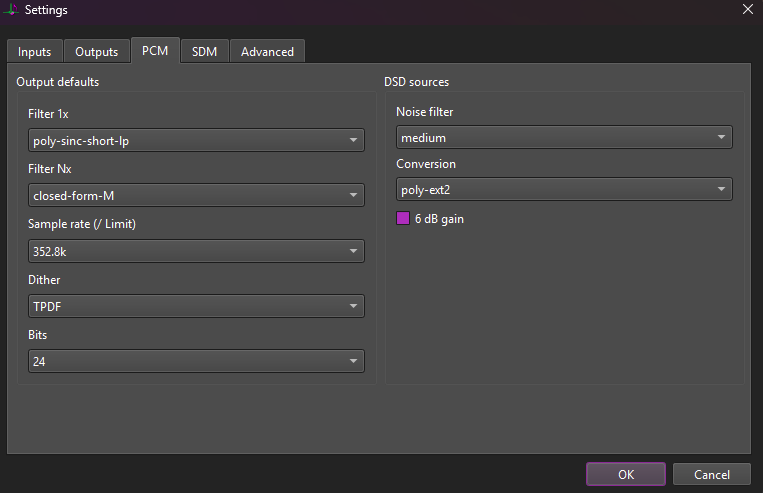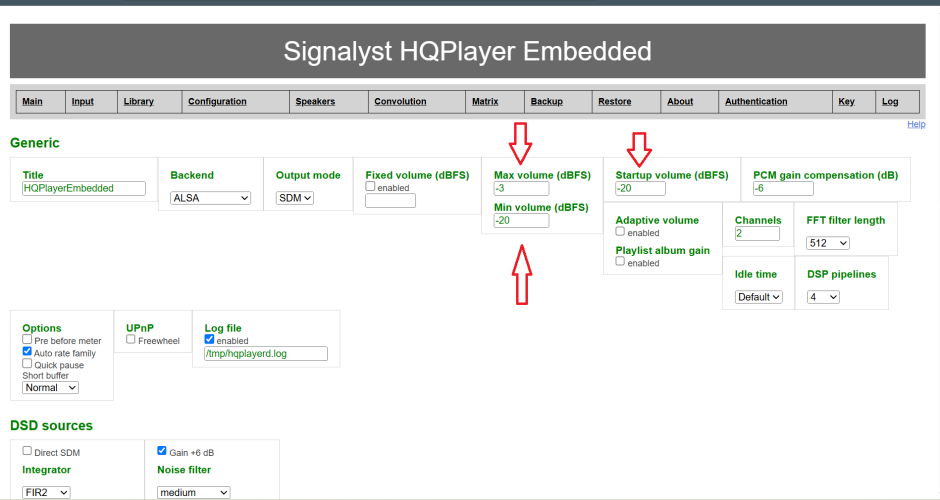Ok, here's some comparison between AHM7EL5 and ASDM7ECv3. Setup: May,Bliss,1266 TC. Filter is gauss-xla (which seems to work best for both IMO). Everything listened @ DSD1024x44.1.
First listening to psytrance
Overall I feel like AHM is very sneaky. It's very enjoyable, but it's super hard to put my finger on anything. It's just enjoyable, while with ECv3 it's much more obvious what's causing the effects.
Then switching to metal (things like Lorna Shore - ...And I Return to Nothingness and Aborted - Infinite Terror)
Here it's very obvious how much faster ECv3 is. Music is simply more aggressive and there is no sign of busyness. All the hits even at very high bpm are clearly in line. AHM isn't at home with this and TC just can't show what it's made of. Experience is super enjoyable even with AHM, but after hearing ECv3 with all that detail the experience leaves me wanting.
Then some random pics
While ECv3 represents the ultimate accuracy, technical capability and pinnacle of what a modulator can extract from music, AHM has more emotional capability. AHM can make you dream and cry, ECv3 can make you smile and appreciate. They seem to represent two different schools: exploration of music and exploration of feelings.
First listening to psytrance
- Imaging: This is the very first thing that becomes obvious. ECv3 remains supreme here. It's imaging is just crazy and it can extract more image information from sound. I have sounds floating in front of me in the air and I go to this world of sounds. With AHM I can easily spot different sounds, but they are not in front of me, but rather filling the space with their presence.
- Bass: AHM7EL5's bass is a bit less accurate, but there is more quantity and slam. ECv3's bass is snappier, accurate and more clearly placed in space.
- Soundstage: The size is similar, but they use that space very differently. AHM maybe feels a bit more closed in, but it feels like a very natural side effect of the way it represents music.
Overall I feel like AHM is very sneaky. It's very enjoyable, but it's super hard to put my finger on anything. It's just enjoyable, while with ECv3 it's much more obvious what's causing the effects.
Then switching to metal (things like Lorna Shore - ...And I Return to Nothingness and Aborted - Infinite Terror)
Here it's very obvious how much faster ECv3 is. Music is simply more aggressive and there is no sign of busyness. All the hits even at very high bpm are clearly in line. AHM isn't at home with this and TC just can't show what it's made of. Experience is super enjoyable even with AHM, but after hearing ECv3 with all that detail the experience leaves me wanting.
Then some random pics
- U2 - Where The Streets Have No Name: AHM is clearly better here. ECv3 is simply boring, but AHM just makes me listen to the music the way I used to listen to this.
- Ozzy Osbourne - No Mo Tears: Here much closer as the detail of ECv3 does impress me at some points, but with AHM it's more about the musical piece, not just beauty of sound at certain points.
- Pentatonix - Little Drummer Boy: Ooh AHM is nice. Just... Mmm... Switching to ECv3 it's wow, but I lost a lot of that emotional connection. With this kind of music I'll pick AHM any day.
- Lang Lang et al. - Beauty and the Beast: ECv3 and piano is just beautiful with very detailed decay on every single note. Switching to AHM I start to think about the movie, the story and what love can overcome.
While ECv3 represents the ultimate accuracy, technical capability and pinnacle of what a modulator can extract from music, AHM has more emotional capability. AHM can make you dream and cry, ECv3 can make you smile and appreciate. They seem to represent two different schools: exploration of music and exploration of feelings.
Last edited:




















 It doesn't sound tube, but it has similar effects, which surprised me. Can't wait to try it with Freya in between of May and Bliss. May be too much of a good thing too, or it could be amazing as well. I haven't had those impressions from music since I sold my Euforia, which synergized with MDR-Z1R super well. It wasn't the most refined experience, but it was somehow magical. Euforia + Z1R was also the only time when my wife said "wow". Freya in between got me quite far, but not quite there yet. It has the same presentation, but the emotional magic hasn't been there. AHM may be the missing piece in the puzzle.
It doesn't sound tube, but it has similar effects, which surprised me. Can't wait to try it with Freya in between of May and Bliss. May be too much of a good thing too, or it could be amazing as well. I haven't had those impressions from music since I sold my Euforia, which synergized with MDR-Z1R super well. It wasn't the most refined experience, but it was somehow magical. Euforia + Z1R was also the only time when my wife said "wow". Freya in between got me quite far, but not quite there yet. It has the same presentation, but the emotional magic hasn't been there. AHM may be the missing piece in the puzzle.









